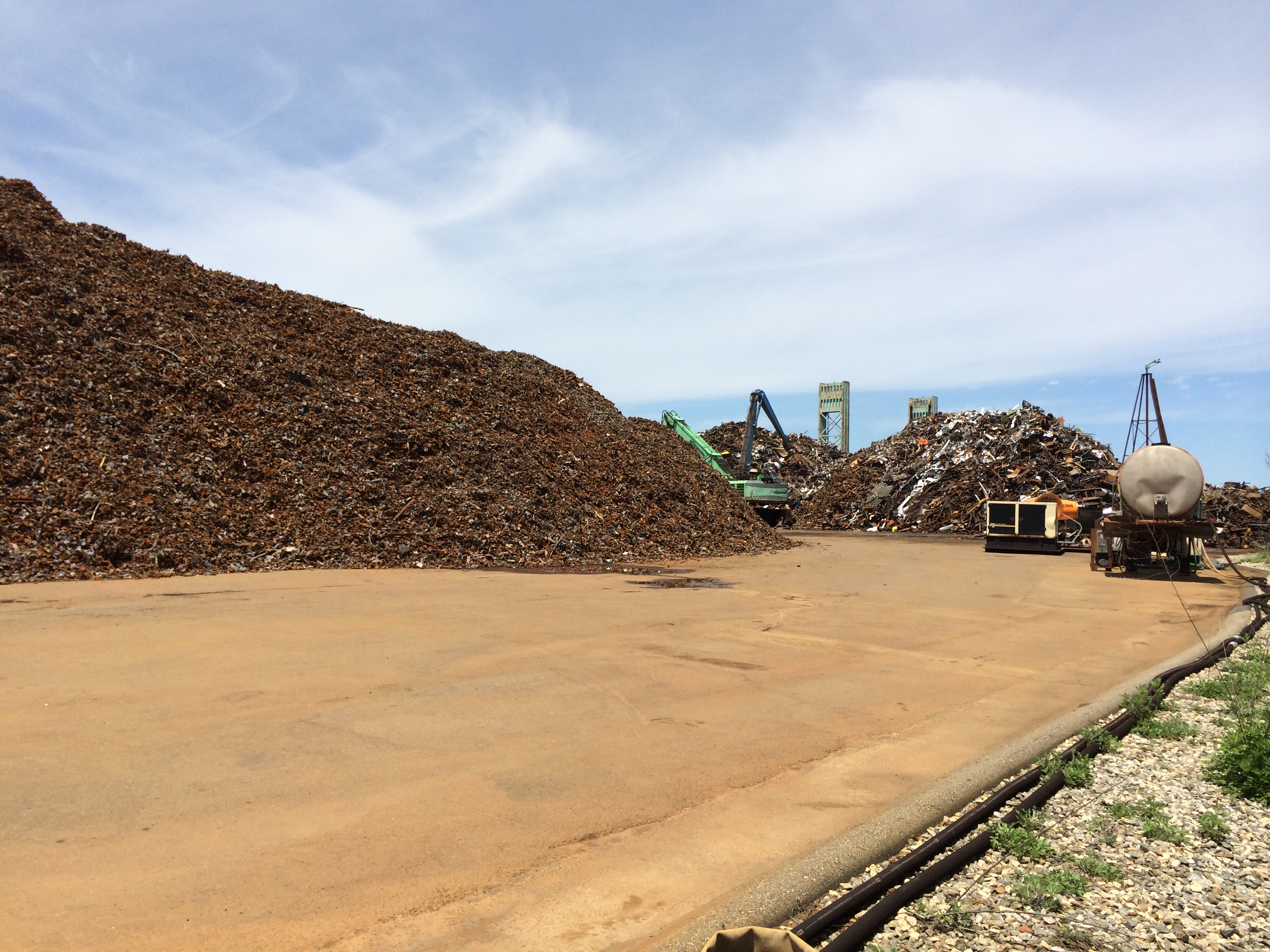Portsmouth isn’t usually thought of as a junkyard port. Located on New Hampshire’s tiny seacoast, it’s recently become a tourist town, foodie destination, a tax-free haven for those escaping nearby “Taxachusetts” and somewhat of a trend. Last August, a New York Times writer called it a “surprising little city of contrasts: touristy and local, cultured and blue collar, historically preserved and scrappy.”
It’s the junk — giant scrap metal piles on the city’s waterfront — that provides one of the biggest contrasts. But last week, under pressure from scrap pile opponents who call them environmental hazards and view killers, the Pease Development Authority decided not to renew the lease for scrap operator Grimmel Industries. Here’s video of scrap being loaded on a ship if you’d like to check out the operation:
The piles will be gone by the end of this year. When the piles go, Portsmouth stands to lose more than just the unique character of its traditional working waterfront. Fourth-generation tug pilot Richard Holt Jr. told the Portsmouth Herald the loss of Grimmel would take away 10% of his business.
"You've got a resource that creates a tremendous amount of jobs," said Holt. "One ship does a lot for the economy. ... It's a mass economic engine."
The big question is what comes next. I grew up partly in Portsmouth so it’s been drilled into my brain that the Piscataqua River is one of the swiftest in the U.S. That quick current makes the river unfeasible for ferry service, and the river’s also too narrow for bigger cargo or cruise ships.
Finding a replacement will be a challenge, but at least Portsmouth’s working waterfront still has supporters. Last Friday the Propeller Club of Portsmouth named Holt, along with P.J. Johnson and Chris Holt, its maritime persons of the year. Gov. Maggie Hassan also recognized the three pilots for their work on behalf of Portsmouth Harbor.
The land will get used one way or another. If another maritime use can’t be found, the city is eyeing the spot as a potential parking lot. That may benefit the downtown’s boutiques and restaurants, but it will be a loss to the region’s maritime industry and the jobs it supports both on and off the water. When your state’s industry only has one port, any loss is significant.




